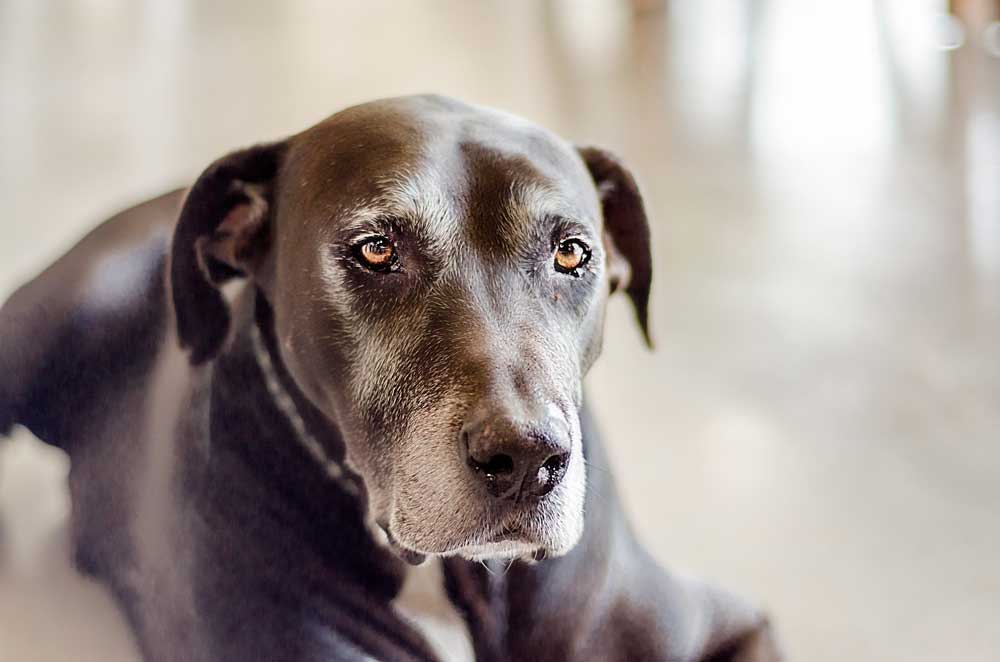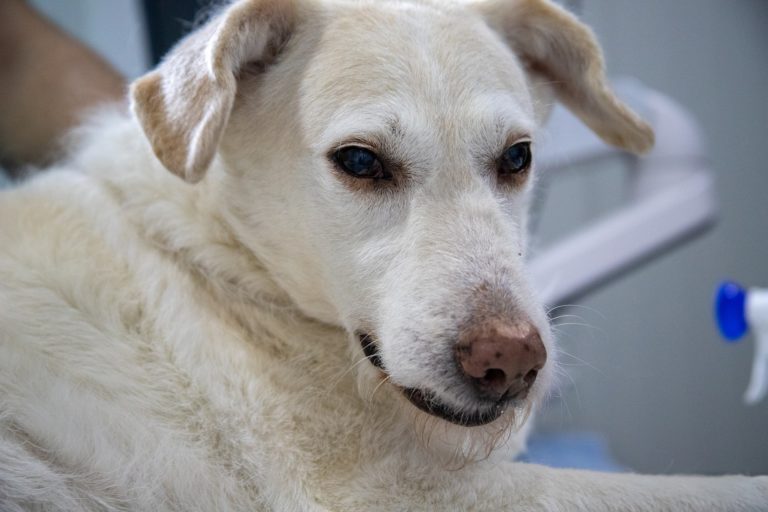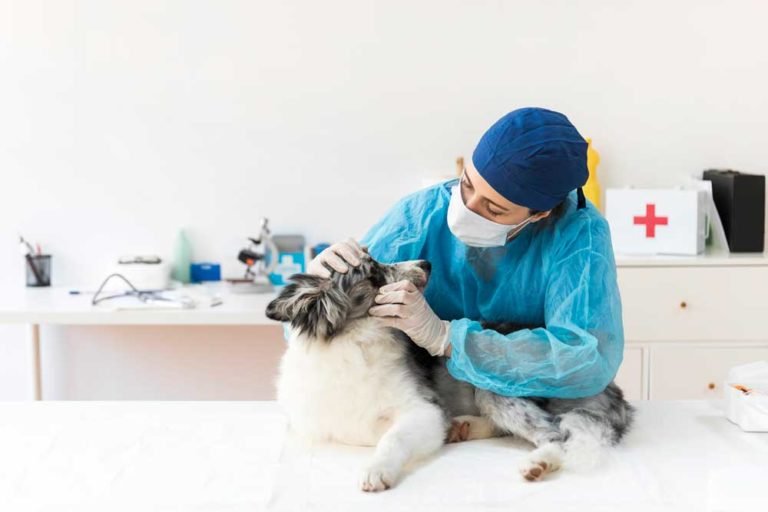12 Things to Ask Before Adopting A Senior Dog
Dogs are often termed as a man’s best friend. These playful creatures are a great family pet. However, the chances for the adoption of a dog slowly decrease as a dog reaches a certain age threshold.
Also, some pet owners find themselves unable to take care of their aging dogs and these dogs end up in a shelter home. Therefore adopting a senior dog is a noble deed that we must consider.
The requirements and needs of a senior dog are different from the younger puppies. They may need a little extra care and attention. However, they are very grateful and reciprocate the love that they receive. Senior dogs adopted from a shelter understand that they have been saved and will shower you with their love and affection. However, adopting a senior dog is a huge responsibility, and therefore it requires an assessment of your own abilities.
Dogs over seven years are generally considered as senior dogs. However, dogs over five years are generally avoided by most dog parents. The seniority depends on the dog breed. Some smaller dog breeds have a longer life span than others and are considered seniors at a later stage.
12 Questions that you must ask before adopting a senior dog
1. Nutritional requirements
The requirements of senior dogs differ from that of young ones, especially in terms of food. The intake of calorie and micro-nutrients differs between old and young dogs.
As a dog ages, he may require a food-specific to his needs. Sometimes a senior-specific dog food may be required.
Senior specific dog foods are specifically made for senior dogs with additional nutrition requirements. Therefore they are a little expensive to manufacture. Hence they are high priced than other dog foods.
Also, senior dogs are known for being slightly expensive to maintain than their younger counterparts. Consider whether or not you would like to make that investment.
While some dogs may not require a change in their diet irrespective of their age, this is a conversation that you must have with the rescue home. This will help you gain clarity over the future expenses that you may need to incur.
2. Medical diagnosis
A lot of senior dogs suffer from some form of medical ailment. This is also one of the main reasons a dog is given away to a shelter home by the previous owners.
Some of the medical issues in the dog requires care and not to mention a lot of money. Diabetes in dogs is common and requires up to two shots of insulin daily. This could be quite expensive on the owner’s part.
When the owners find it difficult to keep up with the medical expenses of their dog, they might decide to give it away.
Therefore it is very important to ask about the pre-existing ailments in your dog.
Having a senior dog as a family pet is a huge commitment, and hence, you should be prepared to provide the dog with the care that they deserve. This requires an assessment of your financial and physical capabilities as a pet owner.
Also, if you adopt an obese dog, they will require to follow a strict diet and exercise regime. Some other medical issues in dogs cannot be as visible as obesity. A diagnosis can be extremely helpful before you adopt a dog.
3. Lifestyle and activity level
Lifestyle and activities in people vary, and so does in dogs. While some dog breeds are energetic even in their later years of life, some may be couch potatoes who like to lay around and relax.
Before you plan to adopt a dog, it is better to get an in-depth idea about your own lifestyle and your activities. Finding a dog that matches your activity level and lifestyle is important.
If you are an outgoing person who loves exercising, adopting a low energy dog can be harmful. You may end up exhausting the dog.
If you have a high energy dog and you are unable to take out time from your busy schedule to help them exercise, the dog can have a lot of energy and can become aggressive and upset.
Getting a dog as per your own lifestyle is the first criterion that you should check. Doing a little research on different dog breeds is a better option before you plan to adopt a dog.
4. Separation anxiety
Dogs love attention and care from their owners. Most of the dogs do not respond nicely to being left alone. While separation anxiety varies in dogs, older dogs are more prone to separation anxiety than their younger counterparts. With age, they can suddenly become more upset when left alone.
A change in surroundings can elevate the anxiety even more. When you bring your senior dog home, a shift in the environment can make him nervous. It is recommended to be by their side initially.
You can slowly teach them to be left alone by gradually increasing the duration. You do not want to upset your senior or make him anxious. Separation anxiety is something that can be resolved easily with care, patience, and love.
5. Training
If you are adopting a senior dog, the chances are that they are potty trained and have basic training. However, that is not true in most cases. The present habits of your dog will depend largely on the way he was taught by the previous owners.
A lot of owners find it difficult to train their dogs due to their busy schedules or other reasons. The bad habits in your dog can be a product of such negligence. Hence, it is better to ask these questions regarding your dog’s obedience level and basic training to the shelter home.
Even when your dog is not adequately trained, you can still teach them new habits with a little dedication.
While some people think it is difficult to train an old dog. It is not true at all. You can teach them new habits and even make them disciplined and obedient.
The question really is whether you are ready to invest that time and energy in your senior dog. You can also get some professional help if the need arises.
6. Behavioral issues
Dogs end up in shelter homes due to a variety of reasons. Sometimes the reason can be behavioral issues of the dog.
Make sure to know in details about the history of your dog. This includes information about his previous parents, the reason for giving away the pet, any underlying health concerns, or behavioral issues.
You must also ask about any past neglect or abuse that the dog has suffered from. This will help you understand your senior dog better. You will also be able to understand his reaction on an emotional level.
Dogs are adorable creatures. However, their previous experiences may make them behave differently. Hence, discussing these issues is absolutely essential.
7. Response towards other animals
If you have other pets at home, this question becomes absolutely necessary. Gathering knowledge about your dog’s response to other animals is essential.
Ask the shelter home whether the dog is accustomed to being around other pets and did the previous family had other pets. These questions are also important to address the socialization issues with your dog. Dogs can feel threatened or competitive around other dogs.
Having prior knowledge of these issues will help you socialize your dog in a better way. If you own a pet, you can bring them to the shelter home to check the dog’s reaction towards them.
8. Response towards children
If you have children in your family, you must learn how the dog responds to children. Learn about the previous family your senior dog was a part of. Does the family have children? Is your dog accustomed to being around children? What Is your dog’s response towards children?
Kids are unpredictable, and they can behave unexpectedly around the senior dog. This sudden behavior can startle your dog, especially if he had bad experiences in the past like abuse etc.
Dogs subjected to abuse may not respond well to touch or sudden movements. In such a case, you should slowly teach your dog to be around children.
9. Allergies and vaccines
If you plan to adopt a senior dog, getting proper information on their medical history is essential and should not be avoided at all. Ask the rescue/ shelter home about known allergies. Has the dog received the vaccines for Rabies, etc.?
Check whether he is current on tick preventives and heartworm preventives. Also, get all medical records available on known allergies and vaccines.
Check the eyes and ears of your dog to rule out the possibility of infection and discharge. Ask whether the dog is neutered/spayed.
Also, you can get suggestions from a vet before you bring your senior dog home.
10. Grooming needs
All dogs require some sort of grooming. While the grooming needs vary from breed to breed, it also depends on your dog’s activity level. Ask important questions about your dog’s grooming needs.
- Do they shed a lot?
- How frequent they need brushing and bathing?
- Do they drool?
- How frequent their nails and hairs need to be cut?
- Did he have a groomer in the past?
All these questions may seem trivial but are extremely important in taking proper care of your senior dog. This will also help you determine how much time, money, and effort you need to invest in your senior dog and whether or not you are ready to make that commitment.
11. Personality question
Before you adopt a dog, you must ask important questions about his personality. Dogs have different personality traits, quirks, and preferences.
Getting this information can be crucial to having a balanced and healthy relationship with your pet. Ask your shelter home about their energy level, their habits, basic training, attention needs.
Also, try to understand how they like to be cuddled or played with. These questions can help make the adoption process much easier, and the dog will be able to settle in their new home easily.
The chances of incorporating your dog’s habits and preferences in your lifestyle are an important consideration before adopting a dog.
12. Assessment of your responsibility
Adopting a senior dog is a noble deed. You rescue a pet that has been abandoned and neglected. However, it is a huge responsibility, as well.
Before you adopt a dog, you need to ask yourself whether or not you are ready for such a commitment. Also, you need to make an assessment of your lifestyle and schedule to make sure that the senior dog will fit in properly.
Senior dogs are notorious for being expensive. You may need to incur some extra cost on its nutrition, grooming, and health concerns. Before you adopt a senior dog, make sure you have the resources to take care of your dog.
Also, the efforts required to maintain a senior dog is much more than their younger counterparts. Hence you need to make sure that your schedule permits you to put time and effort into maintaining the dog.
One of the major reasons that dogs find themselves unable to settle in their new homes is a mismatch between their needs and their owner’s lifestyle. Hence it is important to make a proper assessment before adopting a dog.
These are some of the important questions that you must ask before adopting a senior dog. This will help you gain a proper understanding of the responsibility you are committing to and will also help you make a better choice.
Never adopt a dog based on how cute they look or just because you feel sorry for the dog. Find a dog that is the best fit as your family pet.






